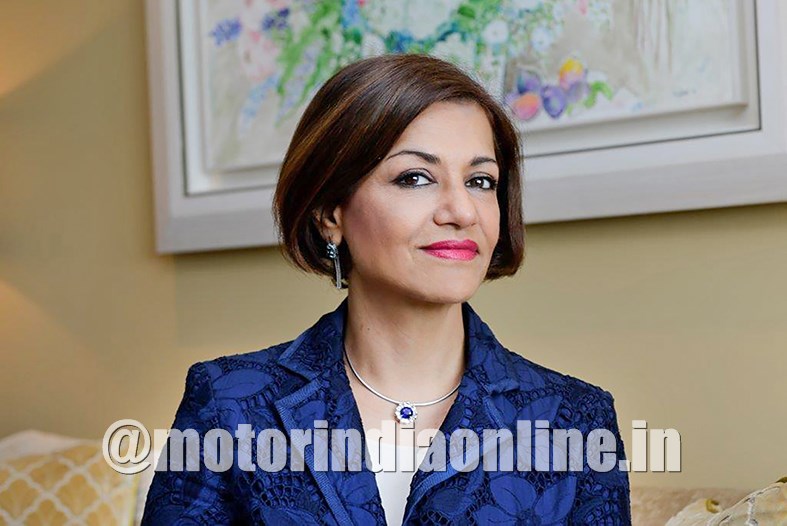Harshbeena Zaveri – Vice Chairman & Managing Director, NRB Bearings
Create a label to pin her down with and you will realise that she has slipped out from between the fingers just like sand does when gripped hard in the fist. Harshbeena Zaveri’s irrepressible faith in humanity, her simplicity and straightforwardness are a welcome change, says Sarada Vishnubhatla
Harshbeena Zaveri might as well be a square peg in a round hole in a conventional setting. But therein lies her uniqueness too. She has little patience for sub-standard work from people – be it herself, the staff, or her children.
She declares: “I am hard on myself and others too. I firmly believe that people constantly evolve to be the best they can be. I am a difficult boss.” For her, a human is above his/her caste, gender or religion. Her streak of independence since childhood, the compassion for everyone and sense of oneness with all of humanity and her commitment – are her gifts from her parents.
“As a child, I was an avid reader. Academics never much interested me but I was in the top 10% of my class by default. As a pre-teen, I had already finished reading the works of literature giants like D H Lawrence, Ernest Hemingway, E M Forster, and translations of entire Gitanjali by Rabindra Nath Tagore, among others. I was the voice at three Soi Lumieres between the ages of 12 and 16 and was a co-compere for children’s English program on the All India Radio,” she reveals.
Having graduated from Wellesley College magna cum laude, Harshbeena joined NRB in 1987 as a trainee. Her father, the Founder and Chairman, late Trilochan Singh Sahney, had built the company being a one-man army but with deep set compassion for his employees. While she shares the sentiment Harshbeena has always worked towards bringing in a literal sea of change in the company.
“It was difficult for me in the beginning because – one, I was from the family; two, I was a woman and three, I was not an engineer. The old-timers did not believe in my plans for NRB. I was concerned with international quality standards, wanted to do future planning, create R&D division but they wanted to solve ‘today’s’ problems. So, they left me to my own devices. It was a good thing because one of the first things I did was to start interviewing every single person we were hiring. I never tried to change the people who worked for my father. I merely created new departments like HR, marketing, international purchasing, and built them ground up.”
Her revolutionary idea – to buy quality raw material from world’s best companies as against locally – helped her control the quality of bearings and the customers welcomed the change.
She says: “I am not an engineer and perhaps because of that I have never understood why it is imperative for Indian companies to seek technology from other countries. So, I created fundamental technology at NRB. We design our OEM products to global automotive brands at our own R&D center from the scratch. This is what I took from my father’s legacy. I have turned my company into one that creates its own IP for its future launches.”
She would like the Indian automotive sector to have ‘more pride in itself’, with more women striving to become heads of organizations and not just on the work floor. She feels Indian companies need to create global brands and work towards becoming ‘the benchmark’. She feels, it is unfortunate yet a harsh reality that glass ceiling for women exists in the automotive industry but that the antidote is in becoming better at every turn disproving them.
Her idea of a better and changed world consists of giving equal opportunities to all. She believes in ‘work for your own sake, not because the world is watching’.
